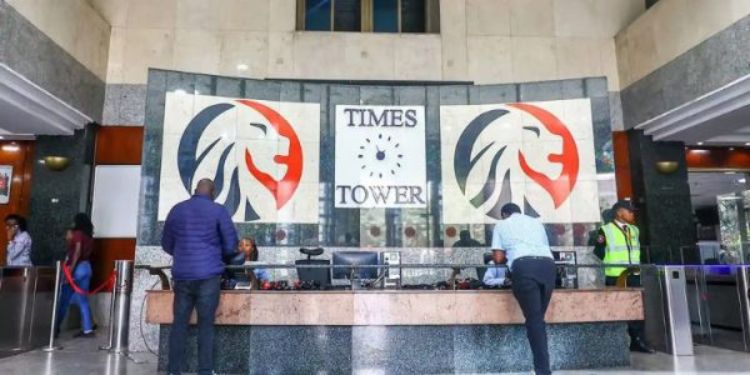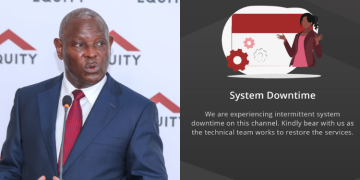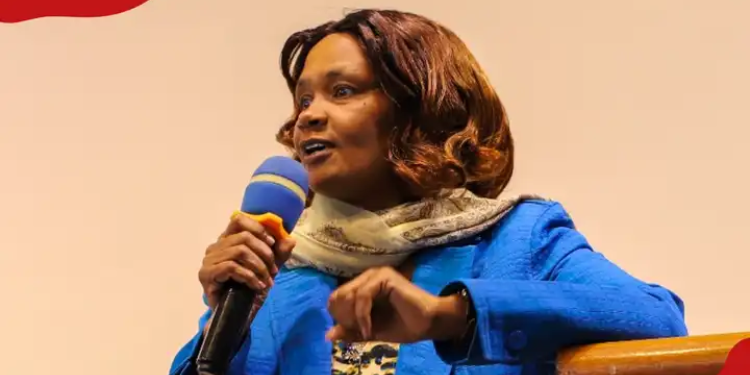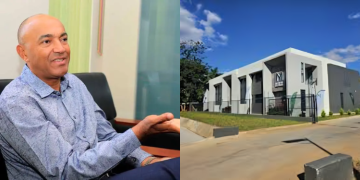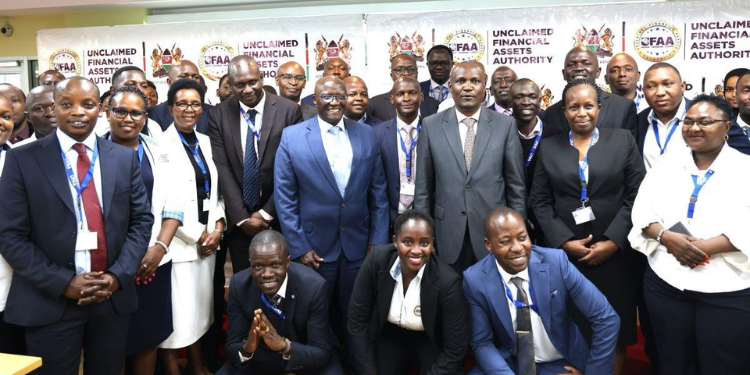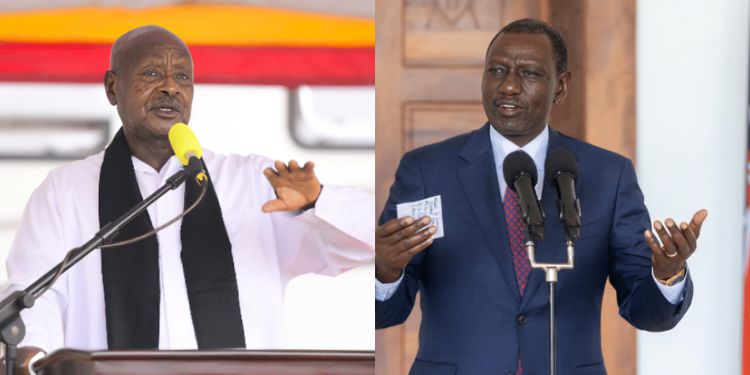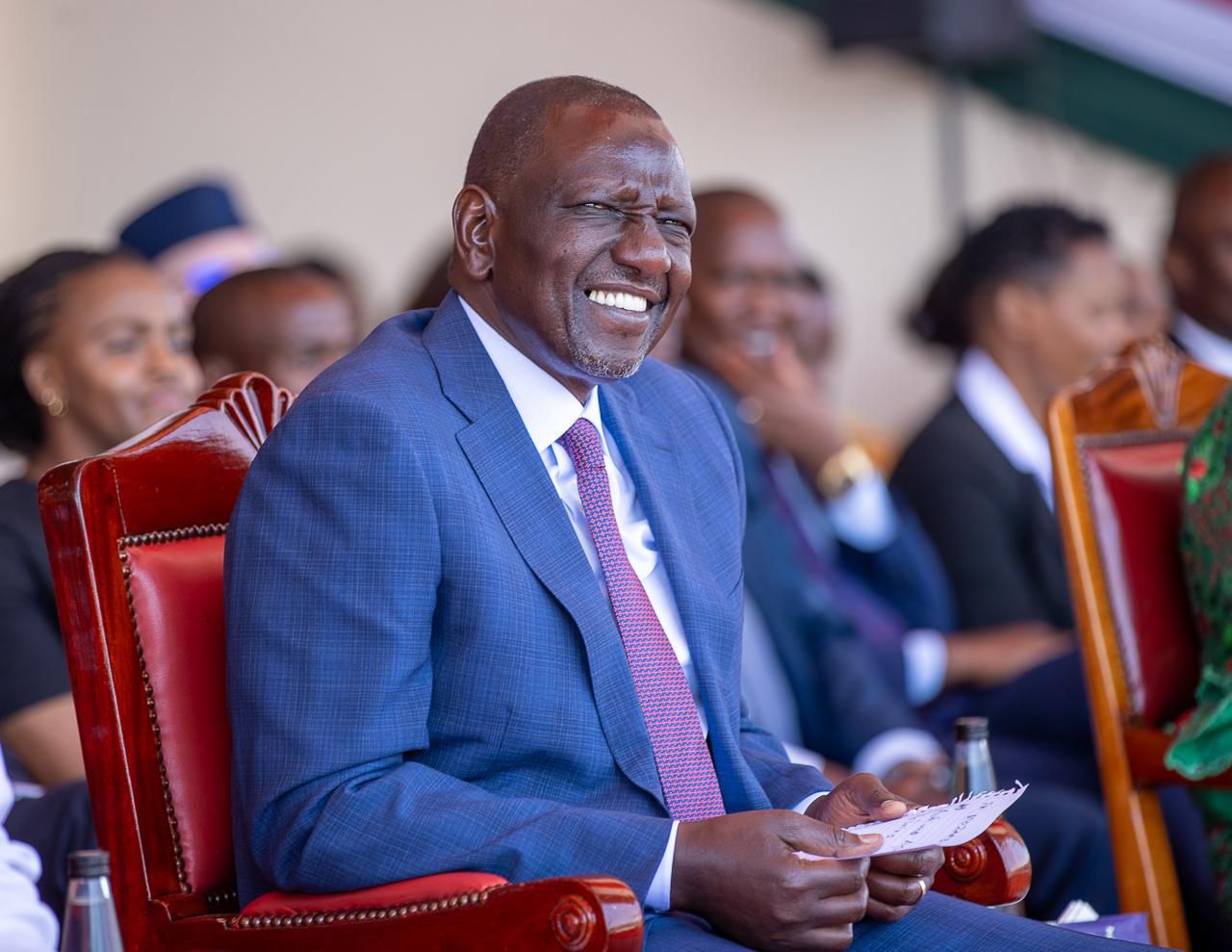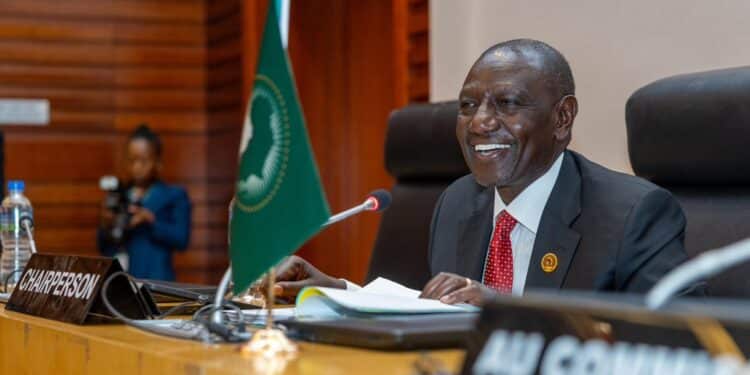As Kenya braces for the official reading of the 2025/26 national budget next week, civil society organizations under the Okoa Uchumi Campaign have raised concerns over the fiscal direction being taken by the government. In a hard-hitting statement delivered on Wednesday, the coalition presented a scathing critique of the 2025/26 budget estimates and the accompanying Finance Bill, accusing the state of institutionalizing inequality, weakening oversight, and escalating the cost of living through regressive policy choices.
Speaking during the session the Okoa Uchumi campaign conveners unpacked what they described as “a dangerous fiscal agenda” being rolled out under the guise of economic growth and administrative reform.
At the core of their concern is the proposed Ksh 4.24 trillion spending plans, set against projected revenues of Ksh 3.32 trillion leaving a wide deficit of Ksh 876.1 billion. The civil society groups fear that the government’s heavy reliance on domestic borrowing to fill this gap will deepen Kenya’s debt crisis, which has already seen public debt surpass the Ksh 11.35 trillion mark.
Okoa Uchumi on Bloated Expenditure
While the Finance Bill 2025 has been pitched as a tool to enhance tax administration and raise revenues, Okoa Uchumi insists it fails to address the true causes of Kenya’s fiscal distress: bloated and duplicative expenditures, misplaced priorities, and systemic inefficiencies.
Key voices from the umbrella that has Amnesty international and Transparency international Kenya, Alexander Riithi of the Institute of Social Accountability (TISA), Abraham Ochieng of Bajeti Hub, Eunice Kamau of Inuka (Ni Sisi), and Annette Nerima of the Kenya Human Rights Commission (KHRC) warned that 2025/26, is a budget that further entrenches poverty while protecting elite interests.
Also Read: Treasury CS John Mbadi Responds to Concerns of Job Losses After Finance Bill 2025
In their one of the most contentious provisions in the Finance Bill is a proposed increase in the tax-exempt per diem allowance from Ksh 2,000 to Ksh 10,000.
The civil society coalition decried this as a blatant tax loophole that will disproportionately benefit senior public officials, especially those in the Executive, while offering nothing to Kenya’s vast informal sector, low-income workers, and small businesses.
“This proposal undermines the spirit of progressive taxation,” said Eunice Kamau. “It protects privilege while punishing hustle.”
Unconstitutional and Unfair
Further, the group protested the proposed deletion of Section 59A(1B) of the Tax Procedures Act, which currently prohibits the Kenya Revenue Authority (KRA) from accessing personal data such as bank and mobile money transactions without a court order.
Okoa Uchumi has described this move as unconstitutional, warning it will enable state surveillance and violate citizens’ rights to privacy under Article 31 of the Constitution and the Data Protection Act of 2019.
“This is not just about taxes,” said Abraham Ochieng. “This is about unchecked surveillance power in the hands of a regime already accused of weaponizing state machinery against its critics.”
Civil society leaders also called out the Finance Bill’s preferential treatment for Special Economic Zones (SEZs) and the Nairobi International Financial Centre, arguing that reduced tax rates under these entities could be exploited by politically connected elites. The lack of clear qualification criteria and transparency mechanisms, they said, risks turning SEZs into tax havens for the well-connected.
One of the most alarming revelations from the civil society analysis report of the Finance bill, is the proposed shift of essential goods from zero-rated to VAT-exempt status impacting items like solar panels, medication inputs, electric vehicles, and bioethanol stoves. This move, they say, will increase production costs, raise prices for consumers, and undermine Kenya’s green transition.
“When you make clean energy and medication more expensive, you’re not just raising costs you’re attacking the livelihoods and health of millions,” said Annette Nerima.
Budget priorities
Beyond revenue measures, the coalition highlighted troubling shifts in expenditure. While administrative sectors continue to receive bloated allocations such as the Public Administration and International Relations (PAIR) sector, which has been allocated 11 percent of the national budget critical social sectors are being sidelined. Health and social protection each receive just 6 and 3 percent respectively.
Also Read: Why KRA Will Access Your Personal Data After Finance Bill 2025 Changes
While Okoa Uchumi welcomed increased allocations to the Primary Health Care Fund and the Emergency, Chronic and Critical Illness Fund, they were alarmed by the complete omission of the Linda Mama maternity program.
“This is a lifeline for women,” said Kamau. Terming its removal from the budget as an act of institutional violence.”
The coalition raised alarm on the Security sector allocations taking a rough stance on the National Police Service and the National Police Service Commission budgets that are set to increases with 9 and 38 percent, respectively. The coalition linking this to a growing pattern of securitization and suppression of dissent, citing previous crackdowns on protesters and human rights defenders.
“There’s a clear attempt to militarize governance and silence criticism through intimidation,” said Nerima.
Irrelevant Public Participation
Civil society also addressed supplementary budgets, arguing that they are used to quietly revise priorities mid-year. These revisions often divert funds from essential programs to expand executive perks. For instance, the State House budget has increased by 2.4 percent in the latest Supplementary II budget, with the Executive Office of the President seeing a 17.6 percent jump.
“This is how public participation is rendered meaningless,” said Ochieng. “The original budget is passed with citizen input, only to be reversed later behind closed doors.”
In their submission to Parliament, the coalition urged lawmakers to reject the current Finance Bill and push for a people-centered fiscal framework that prioritizes equity, transparency, and social justice.
“We cannot tax our way out of this crisis,” said Riithi. “The solution lies in bold political will to slash wasteful spending, eliminate duplication, and invest in people not privilege.”
Follow our WhatsApp Channel and X Account for real-time news updates.



